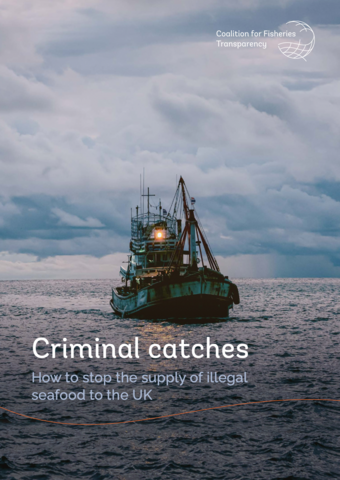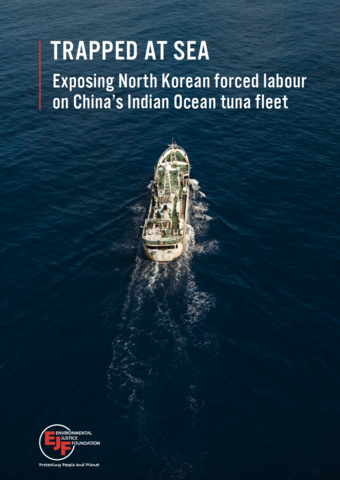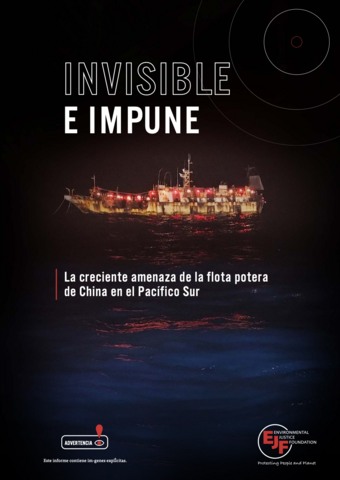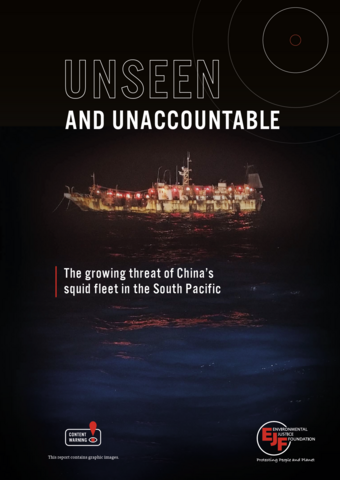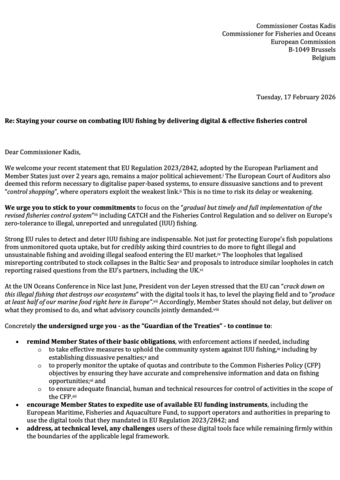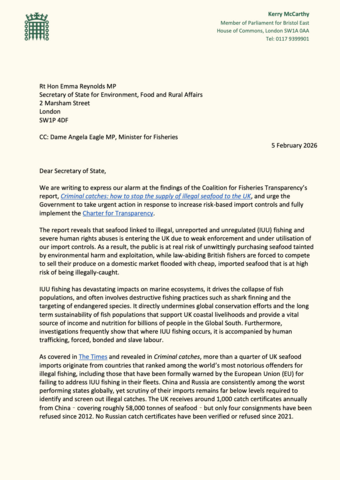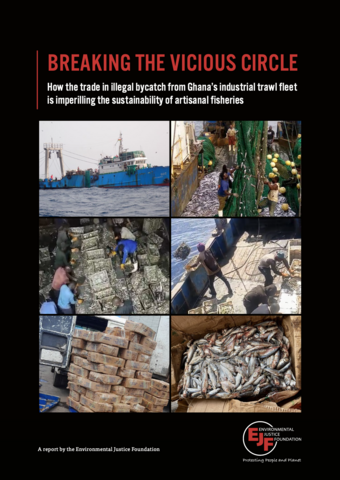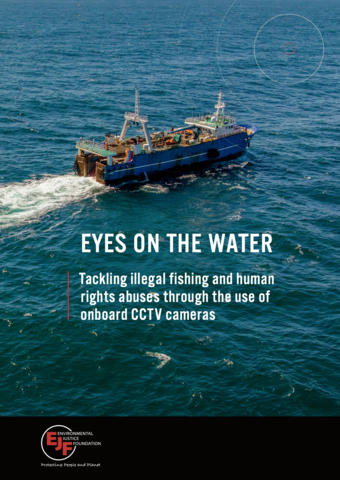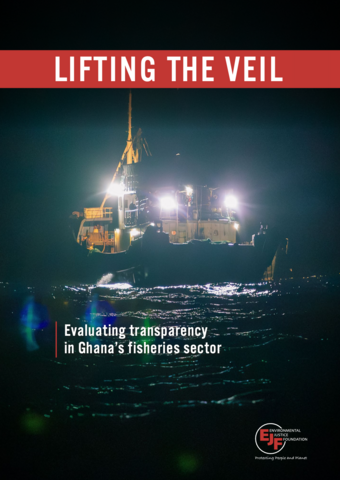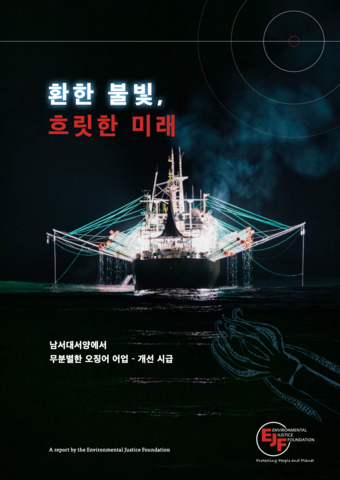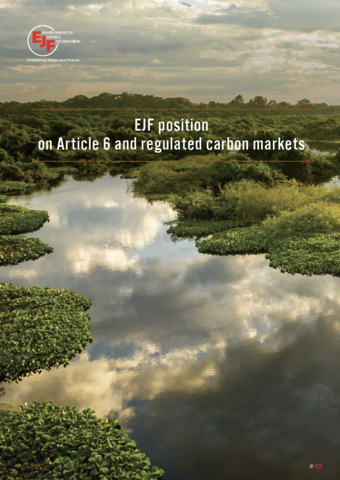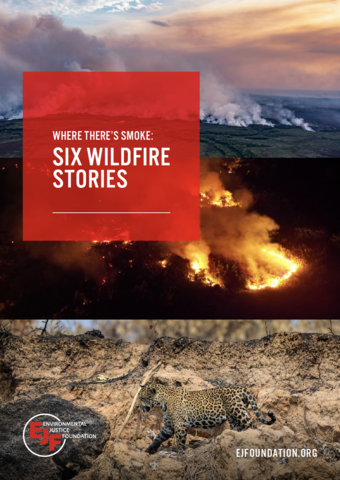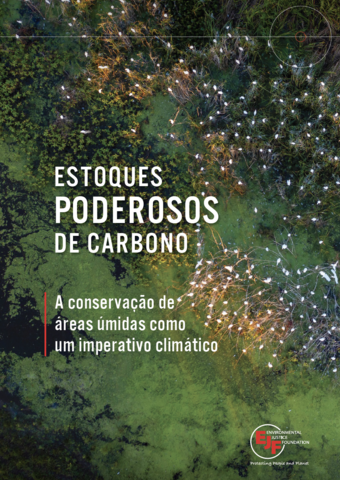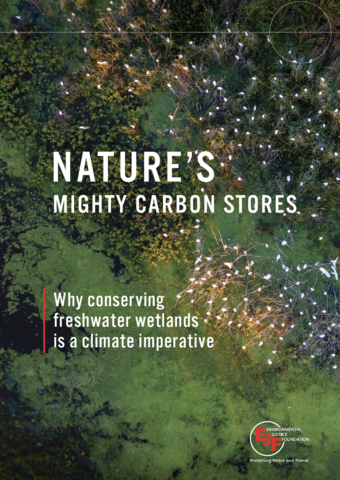Bright lights, dim prospects: The urgent need to address unregulated squid fishing in the Southwest Atlantic to avert a looming environmental crisis
Hundreds of distant-water vessels are plundering squid populations in the Southwest Atlantic, driving a keystone species towards collapse and exposing workers to horrific abuses.
Hundreds of distant-water vessels are plundering squid populations in the Southwest Atlantic, driving a keystone species towards collapse and exposing workers to horrific abuses.
Criminal catches: How to stop the supply of illegal seafood to the UK
This report from Coalition for Fisheries Transparency members EJF and Open Seas finds that UK consumers may unknowingly be buying seafood linked to illegal, unreported and unregulated (IUU) fishing and severe human rights abuses. This follows a near-total end to checks on imported seafood after Brexit.
This report from Coalition for Fisheries Transparency members EJF and Open Seas finds that UK consumers may unknowingly be buying seafood linked to illegal, unreported and unregulated (IUU) fishing and severe human rights abuses, following a near-total end to checks on imported seafood after Brexit.
Trapped at sea: exposing North Korean forced labour on China’s Indian Ocean tuna fleet
This briefing finds that a fleet of Chinese tuna fishing vessels operating in the Indian Ocean reportedly used North Koreans as crew between 2019 and 2024, likely violating UN sanctions. Many were apparently subjected to abuses, including being trapped at sea for up to a decade, on vessels involved in illegal fishing and the killing of dolphins.
This briefing finds that a fleet of Chinese tuna fishing vessels operating in the Indian Ocean reportedly used North Koreans as crew between 2019 and 2024, likely violating UN sanctions. Many were apparently subjected to abuses, including being trapped at sea for up to a decade, on vessels involved in illegal fishing and the killing of dolphins.
Invisible e impune: La creciente amenaza de la flota calamarera de China en el Pacífico Sur: El informe denuncia el alarmante impacto medioambiental y los abusos de derechos humanos asociados a la flota china de pesca de calamar en alta mar en el Pacífico Sudoriental. El informe recoge investigaciones que revelan prácticas generalizadas de cercenamiento de aletas de tiburones, captura incidental de mamíferos marinos, abusos laborales y el desembarco de tripulantes fallecidos en puertos latinoamericanos. También destaca graves fallos de gobernanza en la pesquería de calamar más importante del mundo.
Unseen and unaccountable: The growing threat of China’s squid fleet in the South Pacific: This report exposes the alarming environmental and human rights toll of China’s distant-water squid fleet in the Southeast Pacific. It draws on investigations that reveal widespread shark finning, marine mammal capture, abusive labour practices, and the unloading of deceased crew into Latin American ports. The report also highlights major governance failures: despite early warnings of a decline in the squid population, and calls for urgent reforms to end IUU fishing and forced labour in the world’s most important squid fishery.
Letter to Commissioner Kadis: Staying your course on combating IUU fishing by delivering digital and dissuasive fisheries control: This letter urges European Commissioner for Fisheries and Oceans Costas Kadis to stick to his commitments to focus on the “gradual but timely and full implementation of the revised fisheries control system”, which includes CATCH and the Fisheries Control Regulation, to deliver on Europe’s zero-tolerance to illegal, unreported and unregulated fishing.
Parliamentary letter on UK's seafood imports: In this letter to Emma Reynolds MP (Secretary of State at the Department of Environment, Food and Rural Affairs) and Dame Angela Eagle MP (Minister for Fisheries), over 40 parliamentarians express their alarm at the ongoing failure to adequately scrutinise the UK’s seafood imports and the risk this poses to consumers, fishers and the marine environment. They urge the environment and fisheries ministers to take action to strengthen the UK’s import control system, to prevent the country from becoming a dumping ground for illegal and slave-caught seafood.
Breaking the vicious circle: How the trade in illegal bycatch from Ghana’s industrial trawl fleet is imperilling the sustainability of artisanal fisheries: Populations of small pelagic fish traditionally caught by artisanal fishers in Ghanaian waters are severely overfished and in a state of collapse. The alarming state of Ghana’s small pelagic fisheries results in part from persistent illegal, unreported and unregulated fishing by the largely foreign-owned industrial trawl fleet. The use of illegal fishing gear by trawlers results in large volumes of bycatch, known locally as logo fish - juvenile and undersized fish which are either discarded or sold to coastal communities for profit. Urgent action is needed to break this vicious circle and ensure a more sustainable and equitable future for Ghana’s fisheries.
Eyes on the water: Tackling illegal fishing and human rights abuses through the use of onboard CCTV cameras: Illegal, unreported and unregulated (IUU) and unsustainable fishing places immense pressure on the world’s oceans. These destructive practices go hand in hand with human rights violations and labour abuses. A major challenge in effectively tackling these issues is that much of this harmful activity occurs in the middle of the ocean, where it is easier to avoid detection. The findings of this report show that the adoption of fleet-wide CCTV, as a key tool within broader monitoring, control and surveillance systems, has massive potential to enhance transparency, tackle IUU fishing, and address human rights abuses at sea.
Lifting the veil: Evaluating transparency in Ghana's fisheries sector: Illegal fishing and overfishing risk the collapse of Ghana’s fish populations, directly undermining the most basic human rights of coastal communities, and costing the country millions of dollars every year. Greater transparency is needed to achieve sustainable, legal, and ethical fisheries. This analysis aims to inform and guide this action, and to assist Ghana in moving from commitment to the Global Charter to full implementation, ensuring that the benefits of transparency are secured for the many Ghanaians who depend on fisheries resources for their livelihoods.
환 한 불 빛 , 흐 릿 한 미 래: 본 보고서는 남서대서양 아르헨티나 오징어 어업에 대한 EJF 조사 결과를 제시한다. 세계 최대 규모의 오징어 어장 중 하나인 남서대서양 공해 지역은 관리 감독이 없는 비규제 해역이다. 매년 수백 척의 원양 어선들이 몰려들어, 오징어가 먹이를 좇기 위해 또는 산란지로 가기 위해 아르헨티나 해역에서 벗어나자마자 포획한다. 위성 사진에서도 관측될 정도로 거대한 규모의 이 어선들은 지난 10년간 급증했다. 이는 오징어에 대한 수요 증가와 더불어 어선들이 기존에 잡던 어종을 더 이상 양껏 조업하지 못하게 되면서 오징어로 목표 어종을 전환했기 때문이다. 조사 기간 동안 해당 지역에서 중국 오징어 어선의 조업 시간은 거의 두 배로 증가한 반면, 어획량은 감소하는 우려스러운 징후를 보인다. 즉, 자원량이 위기에 처했음을 시사한다
EJF position on Article 6 and regulated carbon markets: This paper outlines EJF’s stance on carbon credits and the markets in which they are traded, highlighting the role they should play in climate negotiations and efforts to decarbonise the global economy. Under certain stringent conditions, carbon credits can play a role in achieving climate targets, but they are not a substitute for ambitious and decisive action to reduce greenhouse gas emissions.
Where there's smoke: six wildfire stories: Through first-hand accounts, testimonies from environmental defenders and expert insights, this report explores how fires are reshaping the map of risk, deepening inequalities and threatening lives, while reflecting on what must change to stop this crisis from escalating further.
Nature's mighty carbon stores: why conserving freshwater wetlands is a climate imperative: Freshwater wetlands store vast amounts of carbon, regulate water flows, and sustain biodiversity and livelihoods worldwide. Yet they are being drained, burned, and destroyed at alarming rates, setting off a ‘carbon bomb’ and fatally undermining global climate goals.

